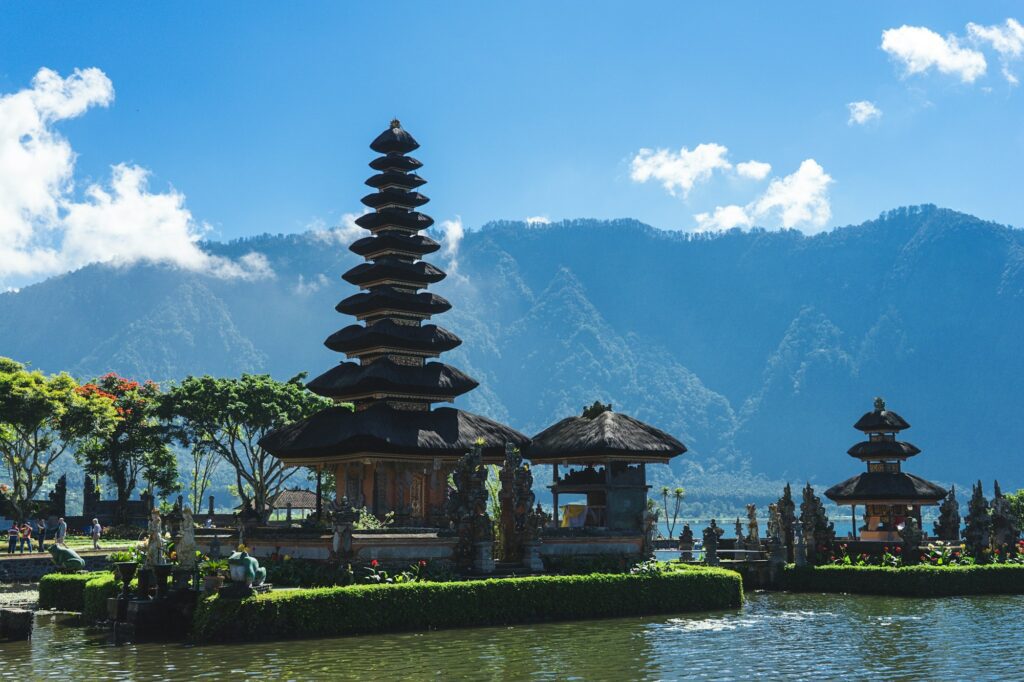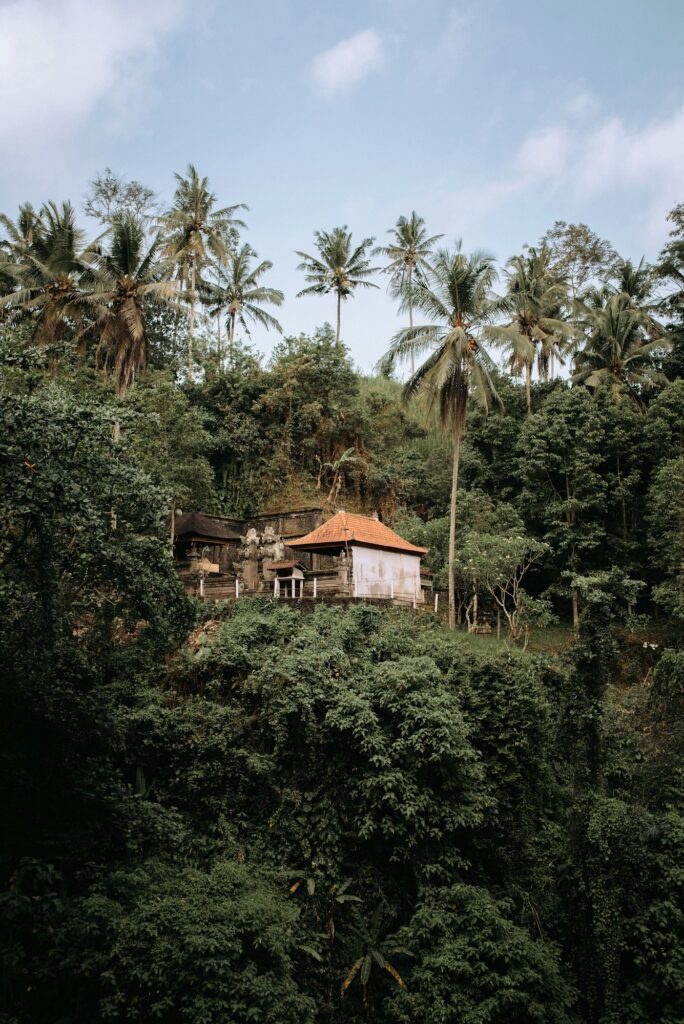Understanding Bali’s Real Estate Market
Overview of the Market
Bali stands out as an attractive real estate investment destination, famed for its stunning landscapes, vibrant cultural scene, and thriving tourism industry. The island’s appeal as a “paradise on earth” has consistently drawn domestic and international investors eager to capitalize on its booming real estate market.
The tourism industry, a crucial economic pillar for Bali, significantly influences the real estate sector. With millions of visitors flocking to the island each year, the demand for accommodation in the form of villas, apartments, and land has seen a marked increase. This surge in tourism has created a symbiotic relationship with the real estate market, fostering continuous growth and additional investment opportunities.
The current trends in Bali’s real estate market reflect the island’s growing popularity with investors. There is an increasing demand for high-end villas that offer luxurious amenities and outstanding sea views. Alongside villas, the market for apartments and land has also experienced a notable uptick, driven by the expanding tourism sector, which encourages both rental income opportunities and potential capital appreciation.
Market Growth and Trends
Recent statistics demonstrate the dynamic nature of Bali’s real estate market. Property sales data reveals a positive trajectory, with increasing numbers of transactions and rising property values. This trend is partly attributed to the island’s burgeoning tourism industry, which continues to attract investors seeking lucrative returns.
Notable areas for real estate investment include Candidasa, Ubud, and Seminyak. Each offers unique attractions that cater to various preferences and investment strategies. For instance, Candidasa is known for its serene beaches and laid-back atmosphere, making it appealing to those seeking tranquility. In contrast, areas like Seminyak provide a more cosmopolitan lifestyle with bustling nightlife and shopping outlets.
In addition to location-based trends, there is a noticeable shift towards environmentally friendly and sustainable housing solutions. This movement caters to the growing segment of environmentally-conscious investors who are keen to integrate sustainability into their investment portfolios. Properties employing renewable energy sources and sustainable materials are gaining traction, reflecting a broader global shift towards eco-friendly living.
Investment Opportunities
Bali offers a diverse range of investment opportunities, presenting both long-term and short-term prospects for potential investors. Long-term investments, such as purchasing villas or land, can yield substantial returns through rental income and potential appreciation in value. These investments are ideal for those looking to ride the wave of Bali’s sustained tourism growth.
In the short term, investors might consider options like eco-friendly homes or luxury apartment rentals, which can generate immediate rental income. The high demand for these property types, coupled with increased interest in sustainable living, presents lucrative opportunities for savvy investors.
Overall, Bali’s real estate market promises impressive profitability. Prospective investors are encouraged to carefully assess potential returns, consider market trends, and weigh the benefits of immediate versus long-term gains. By doing so, they can position themselves to capitalize on the myriad opportunities available within Bali’s thriving real estate sector.
Navigating Legal Aspects of Bali Real Estate
Property Laws in Indonesia
Investing in Bali’s real estate market requires an understanding of Indonesia’s property laws. The legal landscape can be intricate, particularly for foreign investors. Property ownership in Indonesia falls under several categories, including freehold, leasehold, and the Hak Pakai arrangement. Freehold property owners have perpetual ownership rights, making it the most secure form of ownership for local citizens.
Leasehold property, on the other hand, grants rights for a specific period, often ranging between 25 to 80 years, depending on the agreement. The Hak Pakai (Right to Use) arrangement is another crucial category, particularly relevant for foreign investors.
Foreign Ownership Regulations
Foreign ownership of property in Indonesia comes with several restrictions and challenges. Indonesian law prohibits foreigners from owning freehold property directly. However, legal avenues exist that allow foreign investors to acquire property through alternative means. One common method is using an Indonesian nominee who holds the property on behalf of the foreign investor. This arrangement, although frequently used, requires careful legal structuring to protect the investor’s interests.
Another prevalent option is entering into a leasehold agreement. This approach allows foreigners to lease land for up to 25 years with the possibility of extensions, providing a more secure and straightforward route than using a nominee.
Hak Pakai Agreement
The Hak Pakai agreement is a prominent legal route for foreigners wishing to invest in Bali’s real estate market. Under this arrangement, expatriates can obtain the right to use land or property for an extended period, typically up to 80 years, depending on the initial agreement and extensions.
Securing a Hak Pakai agreement involves several steps: an application through the National Land Agency, compliance with all legal formalities, and the payment of associated fees. It grants the holder certain rights, including the ability to lease, mortgage, or utilize the property for commercial purposes. However, it is imperative to understand the limitations of Hak Pakai, particularly concerning resale and inheritance rights.
The advantages of Hak Pakai agreements include long-term security, legal protection, and the ability to mortgage the property with Indonesian banks. Nevertheless, potential investors should seek professional advice to navigate the complexities and ensure their investment is compliant with Indonesian regulations.
Essential Insights and FAQs
Due Diligence and Professional Advice
Conducting thorough due diligence is paramount when investing in Bali’s real estate market. Investors should engage in comprehensive research to understand the property’s legal standing and market position. It is advisable to ascertain the property’s title, verify the absence of encumbrances, and ensure compliance with local zoning laws and regulations. Engaging the services of experienced legal and real estate professionals can significantly ease the navigation through Bali’s complex legal terrain.
Legal advisors will help you interpret property laws and safeguard your interests, while real estate agents can provide valuable market insights and investment opportunities. These experts will also conduct essential checks, such as property title verification, ensuring that the property is legally clear and can be legally transferred or leased to foreign investors. By employing a professional team, investors can mitigate potential risks and ensure their investment aligns with their financial goals and regulatory requirements.
Navigating Market Risks
Investing in Bali’s vibrant real estate market can be highly lucrative, yet it involves certain risks that must be carefully navigated. One potential risk is market volatility, influenced by factors such as economic shifts, changes in tourism patterns, and regulatory amendments. To mitigate this, investors should diversify their real estate portfolio and stay informed about market trends and economic forecasts.
Legal risks also pose significant concerns, especially relating to property ownership and foreign investment regulations. Securing proper legal guidance can help avoid pitfalls related to ownership disputes and ensure compliance with Indonesian property laws. Additionally, environmental risks such as natural disasters should not be overlooked. Investing in properties that adhere to sustainable building practices and are located in safer zones can reduce the likelihood of damage and associated costs.
By adopting a proactive approach and utilizing risk management strategies, investors can safeguard their investments and capitalize on the abundant opportunities within Bali’s real estate market.
FAQ Section
Q1: Can foreigners buy freehold property in Bali?
Foreigners are restricted from owning freehold property in Bali. Instead, they can explore alternative options such as leasing land through a leasehold agreement or obtaining a Hak Pakai (Right to Use) certificate with the help of legal professionals to ensure secure and compliant investment.
Q2: What is the Hak Pakai agreement and how long does it last?
The Hak Pakai agreement allows foreigners to use land or property for a specified period, typically up to 80 years, through initial terms and possible extensions. It provides considerable rights to the holder, including leasing and mortgaging options, though it is crucial to understand the agreement’s limitations regarding resale and inheritance.
Q3: What are the most popular areas for real estate investment?
High-demand areas for real estate investment in Bali include Candidasa, renowned for its serene beaches; Ubud, famed for its cultural richness and tranquil ambiance; and Seminyak, known for its vibrant lifestyle with numerous dining, shopping, and entertainment options.
Q4: How can I ensure my investment is environmentally sustainable?
Investors can opt for eco-friendly properties that utilize sustainable materials and renewable energy sources. Additionally, partnering with developers who prioritize environmental sustainability and adhering to local regulations can further ensure that the investment contributes positively to the environment.
Q5: What are the typical costs involved in purchasing property in Bali?
Typical costs include property purchase price, taxes, legal fees, notary fees, and ongoing maintenance expenses. Prospective investors should budget for these costs and seek professional advice to get an accurate estimate and avoid unexpected charges.
Q6: Is real estate in Bali a good investment for rental income?
Real estate in Bali offers promising potential for rental income, especially in popular tourist areas. With rising tourism numbers, properties such as villas, apartments, and eco-friendly homes can yield substantial rental returns, making it an attractive investment option.
Conclusion
In summary, investing in Bali’s thriving real estate market requires a nuanced understanding of its market dynamics, legal landscape, and potential risks. Conducting due diligence and seeking professional advice are critical steps in making informed investment decisions. By leveraging these insights, investors can navigate the market effectively and capitalize on its lucrative opportunities.








